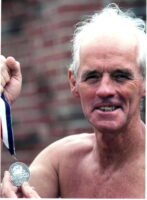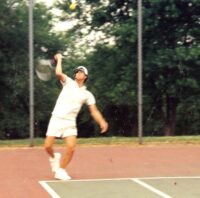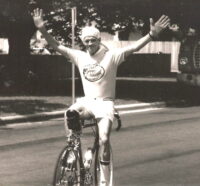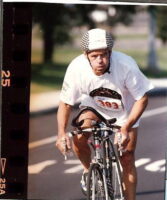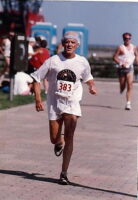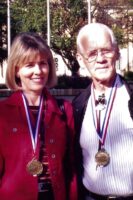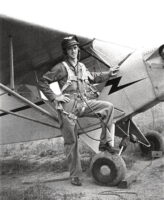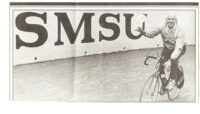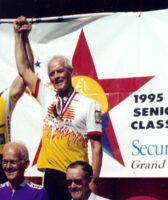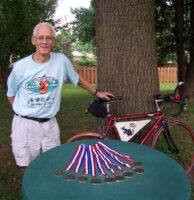Inductees
Ray Wageman
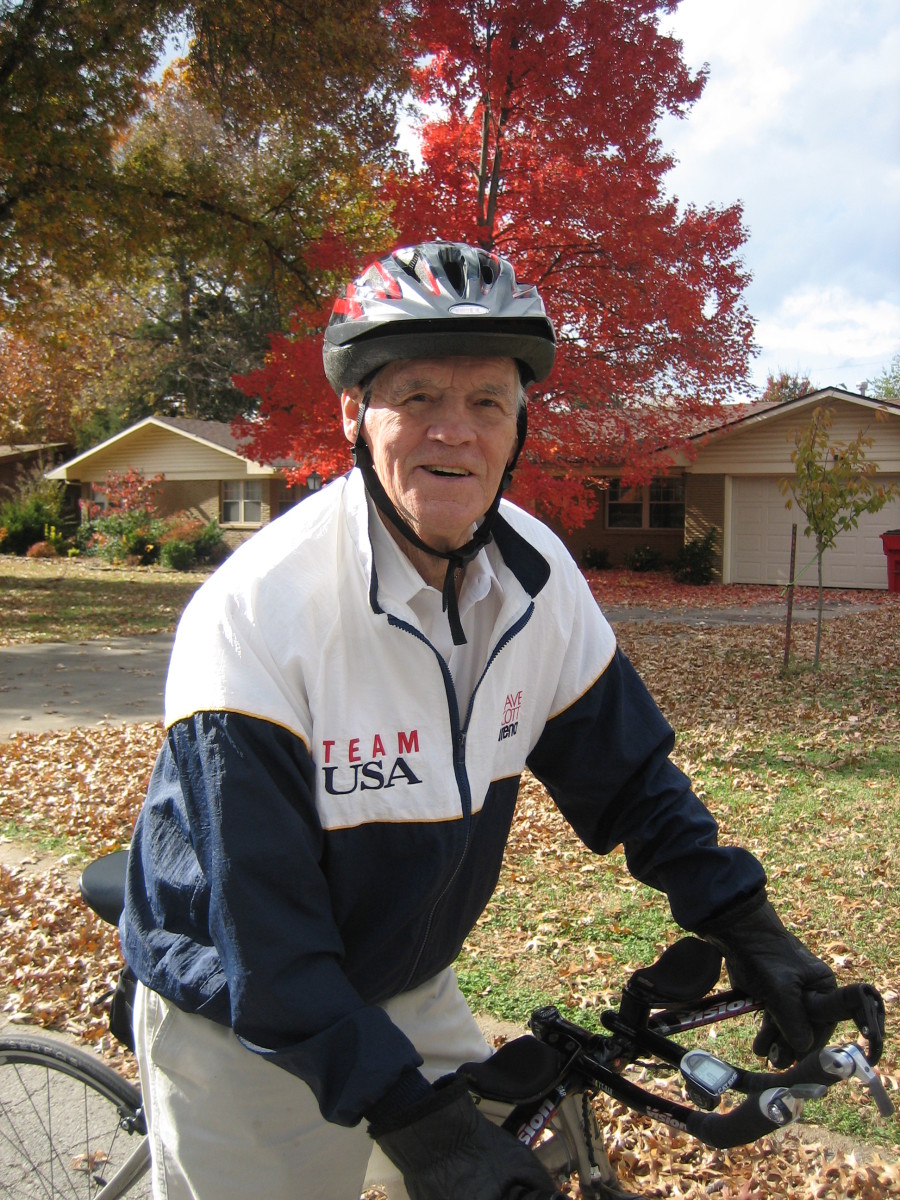
August 2, 1924—April 7, 2014
He was the perfect example of two sayings in life, that age is only a number and that it’s never too late to start a hobby.
In fact, as Ray Wageman once told the Springfield newspaper that he once worked for, “I got started playing tennis when I was 57. Then I got to running and, next thing I know, I was training.”
While most athletes landed on the sports page as teenagers or as early 20s college athletes, Wageman defied the odds and became one of the most successful senior triathlon champions in the country. Which is why the Missouri Sports Hall of Fame is proud to induct Wageman posthumously with the Class 2019.
When he passed away in 2014 at age 89, he had left quite a legacy. After all, competing in a triathlon is no easy feat, considering it consists of a one-mile swim, 25-mile bike race and 6.2-mile run.
The longtime district manager of the Springfield News-Leader logged and successfully completed 101 triathlons between ages 58 and 83. Specifically, Wageman won 397 multiple sport events from 1980 to 2005 in world, national, regional, state and local competitions.
His history-making world-class win came in the 1989 World Championships for the 65-and-older age group, as it marked the first world championship in the developing sport of triathlon, helping to pave way for the sport’s inclusion into the Olympics in 2000. His 2-hour, 56-minute gold medal effort for Team USA also set an age group record.
Wageman also won the 65-and-older gold medal of the 1992 Halifax, Canada Atlantic Games and still holds 15 records set in cycling, swimming and triathlon at the Missouri State Senior Games, and three triathlon records at the National Senior Games Association.
Overall, he logged: almost 44,700 miles on bikes, ran 5,019 miles and swam 1,101 miles.
This from a man who was proud to be an athlete – and a worker. After retirement, he worked at Bass Pro Shops selling boats.
“All of these runners focus only on run, run, run,” he was quoted as saying at age 70, after earning nine medals at the U.S. Senior Sports Classic, known as the Senior Olympics. “I play a multitude of sports. It’s more fun that way.”
And, of having competed in a Willard run against competitors one-third his age, he said, “I could hang with those young jockos. I was right in there with them for the first half of the race.”
Wageman always had a fighting spirit. He served in World War II as a waist gunner and radio operator on the B-17 Flying Fortress with the 8th Air Force and later served stateside in the Korean War. He later was educated at Missouri State University and, years later, enrolled again – plus enhanced his training by using MSU’s pool and track.
He and his wife, Evelyn, helped launch the Springfield Swim Club, Southern Hills Swim Club and Springbike Bicycle Club, plus helped build tennis courts in their neighborhood.
In fact, tennis was the Wageman’s favored sport. Yet in the early 1980s he began competing in 10-kilometer races.
By then, the triathlon – developed in southern California in the mid-1970s – was gaining in popularity. That piqued Wageman’s interest, and he pursued the sport after retiring as the News-Leader’s circulation manager in 1983.
Four years later, Triathlon Today magazine featured him as Best Man in the Sport (Age 60-64) in its August 1987 edition. That was one of many news stories to feature his inspiring story.
“I can’t imagine doing anything else,” Wageman once said. “Just laying around like some people do, that’s so close to death.”
It’s no surprise, then, that Wageman earned respect of fellow competitors.
Wageman was named to the United States Tri-Fed Association’s All-American Team seven consecutive years, earned a spot on USA Triathlon’s list of “Notable Athletes” from 1983 to 1989 and was the National Age Group Champion for 75- to 79-year-olds.
He is an inductee of the Ozark Mountain Ridge Runners Hall of Fame, and the bicycle statue – erected on Galloway Trail in Springfield by the Springbike Bicycle Club – bears his name and lifetime contribution award.
“People show up (at races) and say, ‘Man, I hope I can beat Ray,” Diane Hood, an accomplished runner, once said. “To have an 80-year-old guy beat you when you’re in your 20s, you know, that’s something. And he beats a lot of 20-year-olds. These are guys who are obviously very fit and competitive, but putting the whole package together is a challenge. Ray seems to do that well.”
